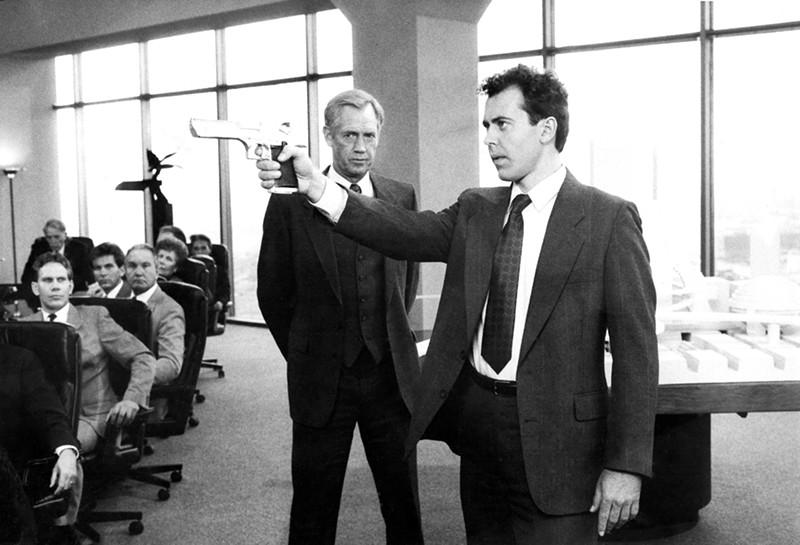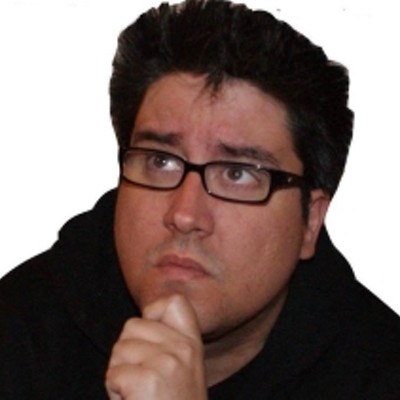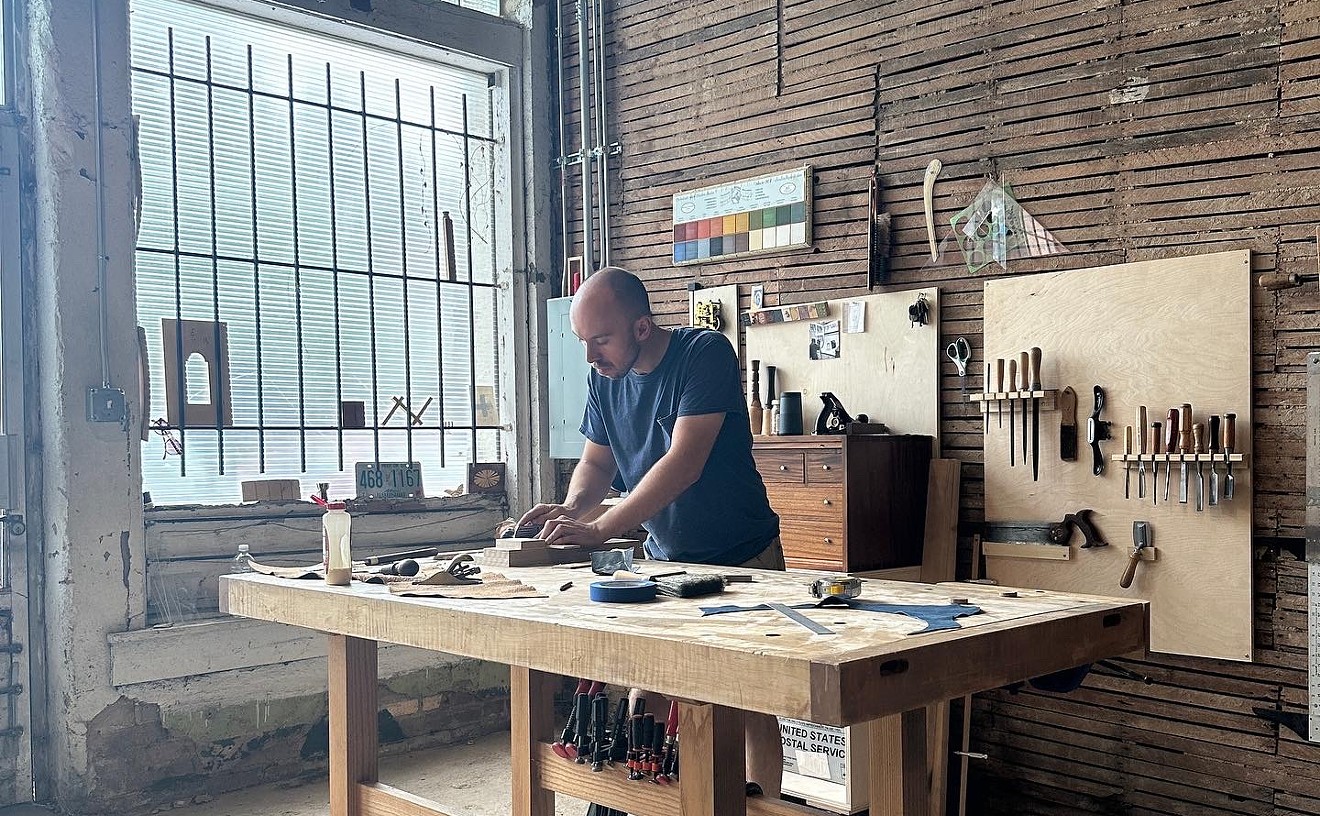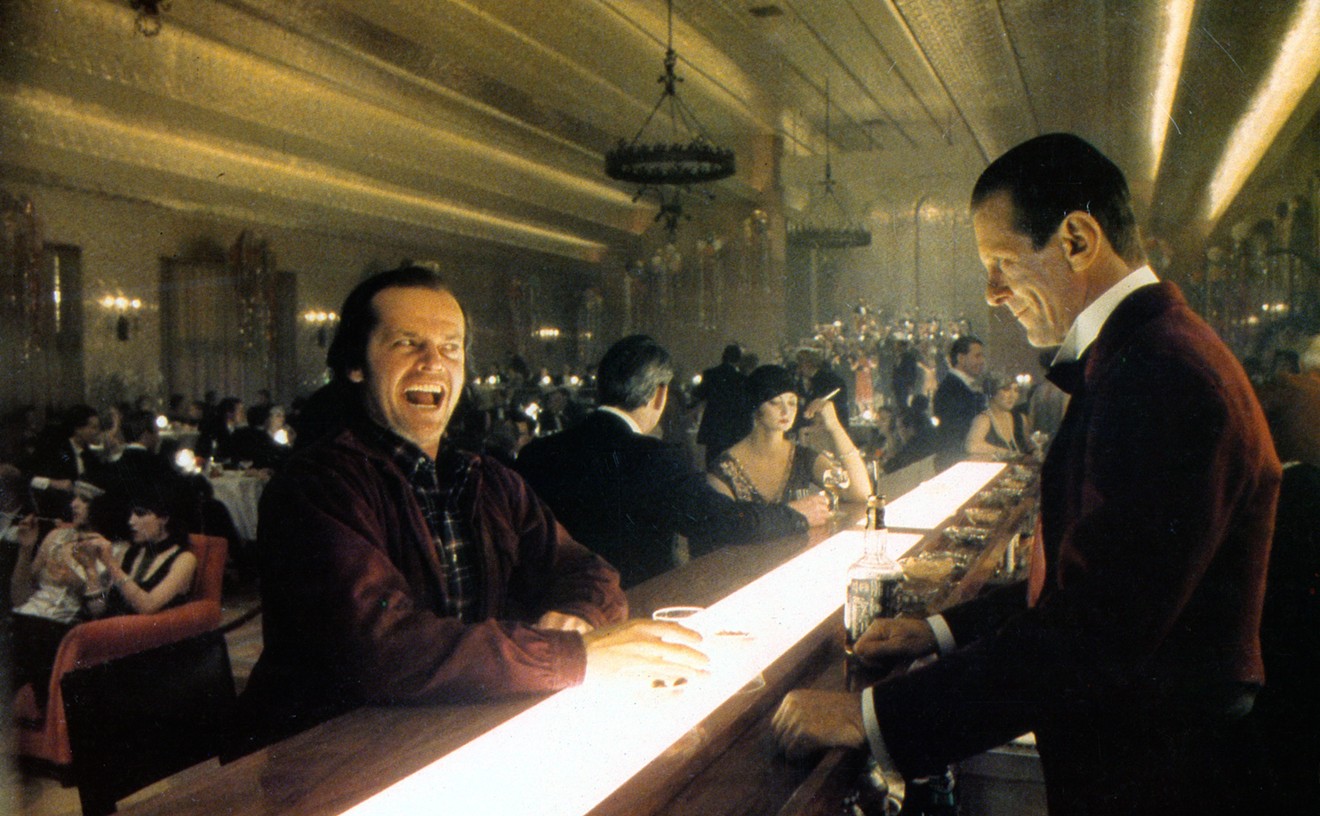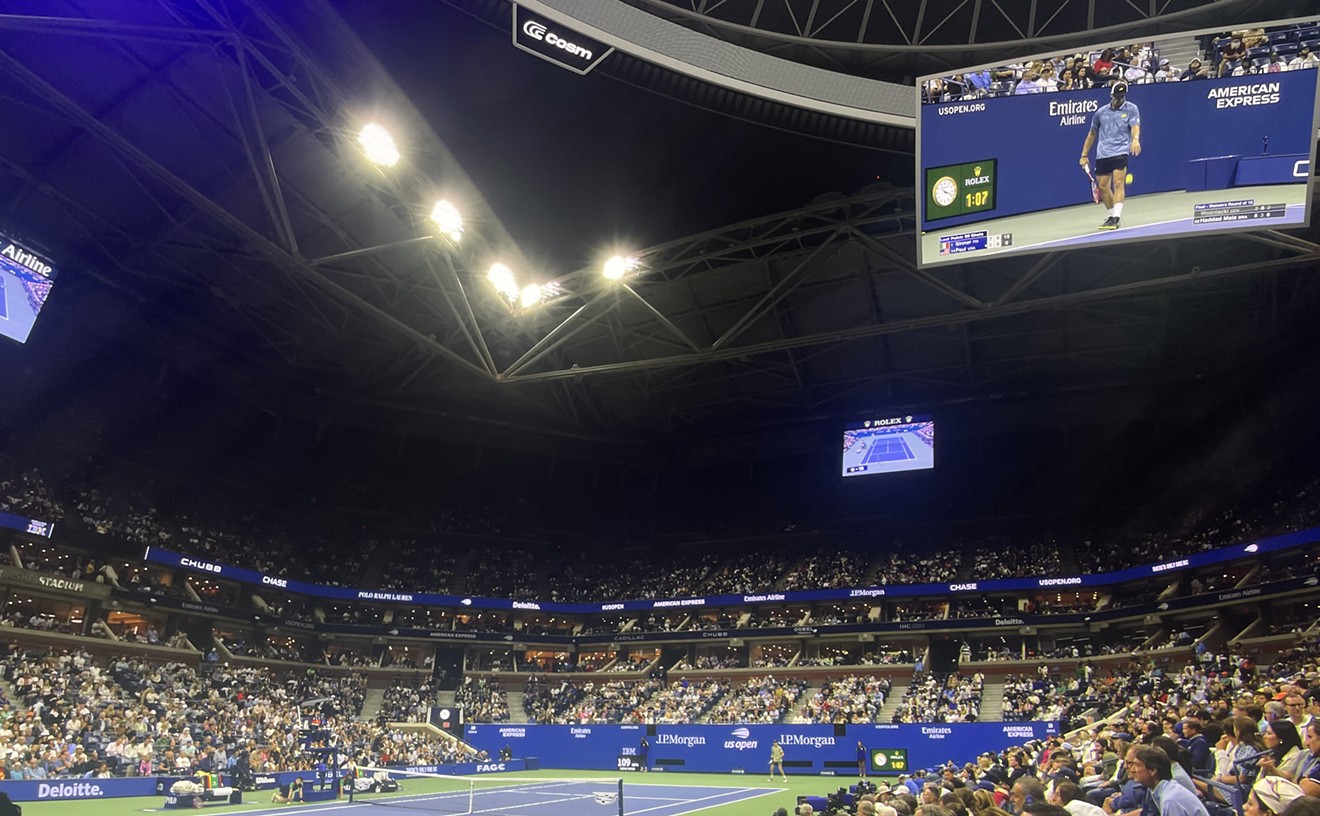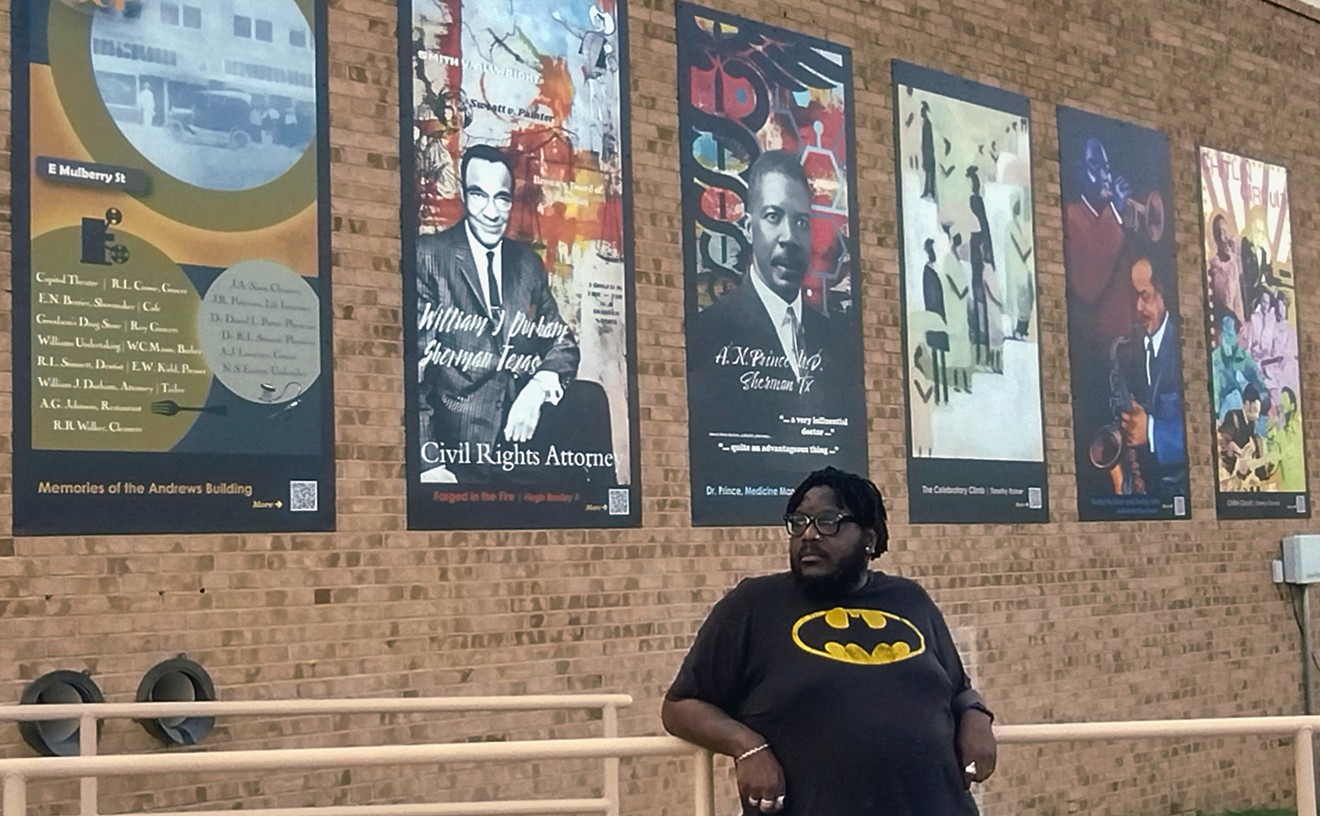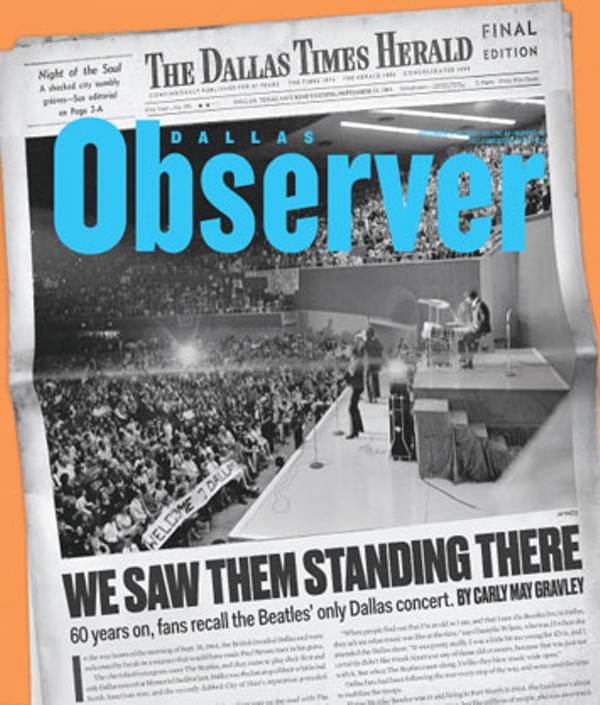Who knows when we'll be able to go back to the movies again? Even if the worst case scenario happens and movie theaters become a distant memory like rotary phones and bunny ear TV antennas, there might be another way for you to get your RoboCop kick.
Ed Neumeier, the screenwriter who wrote the first RoboCop movie with Michael Miner in 1987 that director Paul Verhoeven shot in Dallas, says a TV prequel called OCP is in the works.
"We all could use more RoboCop wherever when can get it and MGM seems to be willing, and that's good for me," Neumeier told the Dallas Observer. "I'm very hopeful."
Neumeier first told the film website Moviehole that he's working on a TV project with writers Dave Parkin and Rob Gibbs that takes place in "Old Detroit" and tells the story of Dick Jones, the evil Omni Consumer Products (OCP) executive first played by Ronnie Cox in the original film.
The show would explore how Jones rose to power in the private arms and security force that owns Detroit's privatized police department. Jones' influence in the company seems to be fizzling out at the start of the movie when his urban assault robot ED-209 glitches out and kills a younger OCP executive played by Dallas actor Kevin Page. The project's failure gives a junior OCP executive named Morton (played by Miguel Ferrer) a window of opportunity to move ahead with his RoboCop prototype.
Neumeier says the film would explore the backstory of the vicious, cutthroat corporate executive and how he became such a crushing, competitive voice who's willing to kill and consults with criminals to find success.
"It's about the rise and tragic fall of Dick Jones," Neumeier says. "It's about the tech world as we know it now and there's a lot of opportunities to do stories like that. He starts out as a good guy but it doesn't always work that way forever. Dick Jones is the perfect vehicle for our time. Who knew?"
Neumeier says the TV show is in the very early stages of development and he's encouraged by its progress so far. He says Parkin and Gibbs, who came up with the idea for a Dick Jones prequel, "grew up on RoboCop and love it," and adds that another producer on board with the project is Michael Rosenberg, who produced the HBO series Hung and AMC's Hell on Wheels.
The show follows the same timeline vein as other prequel series that tell the origin story of famous movies and TV series like the Breaking Bad prequel Better Call Saul and Bates Motel, the A&E series inspired by Alfred Hitchcock's Psycho. So don't expect RoboCop himself to walk into the frame if the series goes to air.
"[The Dick Jones project] has to be its own thing," Neumeier says. "It's a form that works well, but what's interesting about this is it's the tragedy of Dick Jones and a new character that these guys [Parkin and Gibbs] have introduced that make it significantly more like the times we live in, the era that brings you to RoboCop."
This RoboCop TV project would be the third time that Old Detroit made its way to the small screen. A single season Saturday morning cartoon version went into syndication in 1988 followed by a live-action series that went on the air in 1994.
Neumeier and Miner also worked on a proper sequel to the original film that's in the works from a new writing team also at MGM. Neumeier told the Dallas Observer in 2018 that he and Miner first worked on their sequel script following the blockbuster success of the first film. RoboCop 2: The Corporate War would focus more on the corporate influence and conflict that arises when government privatizes its police forces. Their script contained the same satirical and violent edge of the first film, but a writer's strike in 1988 and the demands of the workload led to a less than stellar script. Both producers moved on to different projects.
The rights to RoboCop moved from Orion Pictures to MGM, and talk about a sequel script picked up during the making of the 2014 remake. Director Neill Blomkamp was first tapped to helm the project but he later announced on his Twitter account that he stepped away.
Neumeier says the RoboCop Returns movie is still on track thanks to its current director Abe Forsythe, the Australian filmmaker behind the 2019 horror comedy Little Monsters starring Lupita Nyong'o and Josh Gad, who's working on a new draft of his and Miner's original draft.
"He's got a sense of humor and he can work with movie stars so that's all good," Neumeier says of Forsythe. "He made a docudrama about a race riot in Australia [2016's Down Under] and it felt kind of real like RoboCop. It's got kind of this '80s verité-ish stuff and I think it's important to have that tone and lightness in RoboCop. If you go very, very serious, it's not very effective."
Both projects are far from starting production so no decisions have been made about how Dallas might be involved in the production, but Neumeier says there wouldn't be an Old Detroit to shoot without the city and the many locations around town that brought to the big screen. The futuristic looking Dallas City Hall designed by architect I.M. Pei served as the memorable establishing shot for OCP headquarters in the final moments of the first film.
"Everybody knows that Dallas looks like Old Detroit," he says. "We don't have a script yet but if we start into production, we would have that conversation."

Audio By Carbonatix
[
{
"name": "Air - MediumRectangle - Inline Content - Mobile Display Size",
"component": "18855504",
"insertPoint": "2",
"requiredCountToDisplay": "2",
"watchElement": ".fdn-content-body",
"astAdList": [
{
"adType": "rectangle",
"displayTargets": "mobile"
}
]
},{
"name": "Editor Picks",
"component": "17105533",
"insertPoint": "4",
"requiredCountToDisplay": "1",
"watchElement": ".fdn-content-body",
"astAdList": [
{
"adType": "rectangle",
"displayTargets": "desktop|tablet"
},{
"adType": "rectangle",
"displayTargets": "desktop|tablet|mobile"
}
]
},{
"name": "Inline Links",
"component": "18349797",
"insertPoint": "8th",
"startingPoint": 8,
"requiredCountToDisplay": "7",
"maxInsertions": 25
},{
"name": "Air - MediumRectangle - Combo - Inline Content",
"component": "17105532",
"insertPoint": "8th",
"startingPoint": 8,
"requiredCountToDisplay": "7",
"maxInsertions": 25,
"watchElement": ".fdn-content-body",
"astAdList": [
{
"adType": "rectangle",
"displayTargets": "desktop|tablet"
},{
"adType": "rectangle",
"displayTargets": "desktop|tablet|mobile"
}
]
},{
"name": "Inline Links",
"component": "18349797",
"insertPoint": "8th",
"startingPoint": 12,
"requiredCountToDisplay": "11",
"maxInsertions": 25
},{
"name": "Air - Leaderboard Tower - Combo - Inline Content",
"component": "17105535",
"insertPoint": "8th",
"startingPoint": 12,
"requiredCountToDisplay": "11",
"maxInsertions": 25,
"watchElement": ".fdn-content-body",
"astAdList": [
{
"adType": "leaderboardInlineContent",
"displayTargets": "desktop|tablet"
},{
"adType": "tower",
"displayTargets": "mobile"
}
]
}
]

